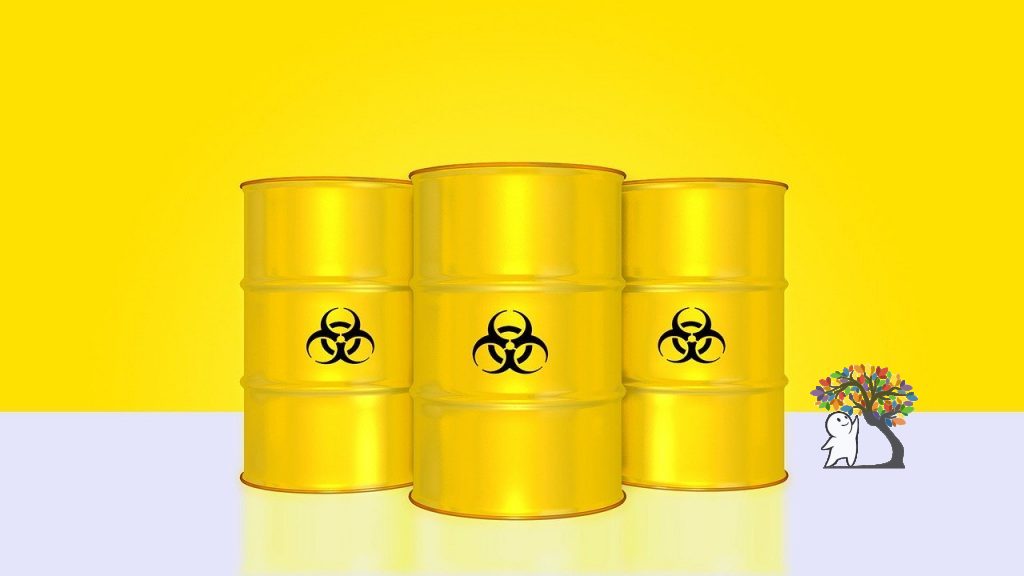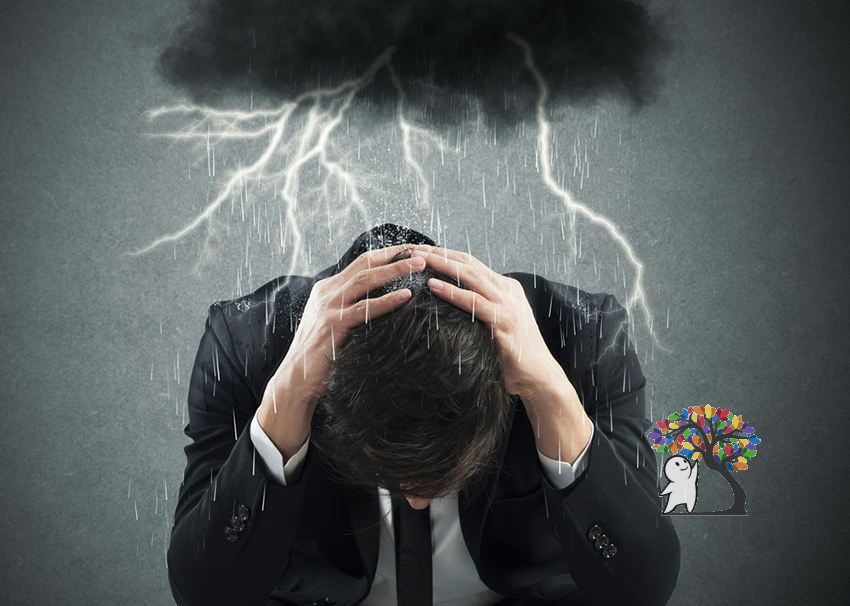5 Signs You Have a Toxic Mindset

When we talk about mindsets we’re talking about the collective thoughts we have and the attitudes that we’ve established. Everyone has a mindset that influences the way they see the world and colors their views, but not all of them are the same. Some are healthy. Those are the ones that allow people to grow throughout their lives, learn about themselves, and be in control of their own happiness. But some can be unhealthy. Those are the ones that become an obstacle standing in the way of success and leading to unhappiness.
It’s because of this impact our mindsets have that we must think carefully about our own. While we are all capable of achieving healthy ones, the following are some toxic mindsets and some signs that you might have them:

1. Your thoughts are fixed
A fixed mindset is an unproductive way of thinking that sits opposite of what’s called a growth mindset. As you might imagine, a growth mindset fosters personal growth and development. The fixed mindset, on the other hand, hinders growth, as it’s predominant concept is that we’re either good at something or not based on inherent abilities. If we’re just born being good or bad at something, there’s no point in trying or working hard, so people who hold such beliefs tend to become stagnant where they are, their mindsets holding them back from learning and expanding. This mindset contributes to negative thought patterns and puts limits on healthy behaviors. You might have this mindset if you’re always focusing on arbitrarily measuring intelligence and success, or if every flaw feels like a failure as opposed to a lesson.

2. You are pessimistic
Pessimism is the tendency to see the downsides in everything and find the worst parts of every situation. While the reasoning might seem basic, but it’s important to consider just how bad being pessimistic is. Glass-half-empty people might believe that bad things always happen to them and they’d probably spend more than a typical amount of time feeling bitter about it. They think harmful negative thoughts and fixate on them without regard to what it might be doing to their lives. They might even feel defeated before they’ve even attempted to do something. In addition to clouding your mind and obscuring more productive ways of thinking, this type of pessimism is also bad for your physical health.

3. You aren’t mindful
Being mindful is slowing down and being focused on your awareness in the present moment for the purpose of controlling emotions and lowering stress. It’s a powerful tool that many people use to overcome anxiety or to simply enjoy each moment to its fullest. It provides us with the message that we have the power to get through difficulties because we don’t have to dwell on the past or worry about the future —we only have to exist here and now. You may be thinking that mindfulness is just something trendy people are talking about instead of thinking of it as an important way of thinking. But if we aren’t at least trying to be mindful, it can become toxic because our lives get polluted with unnecessary thoughts, feelings, and reactions that we don’t know how to deal with. Mindfulness helps keep people on an even keel and prevents them from cracking under built-up pressure. But unfortunately, without a mindful mindset, you can never reap those benefits and will likely miss out on the opportunities mindfulness brings.

4. You aren’t self-aware
If you aren’t self-aware, you lack conscious knowledge about yourself and how you move through the world. You don’t know who you are or why you feel what you feel. It might not seem toxic at first, but this type of mindset can actually do a lot of harm. A lack of self-awareness means you don’t know or appreciate your strengths, nor do you recognize your weaknesses. The result is low self-esteem. You may tell yourself you can’t do something without even trying because you can’t see your good qualities and aren’t cognizant of your abilities. You can’t even practice what needs to be improved since you aren’t awake to what those things are. Lack of growth and missed opportunities are the consequence.

5. You aren’t grateful
There’s a popular quote that says “gratitude turns what we have into enough.” A mindset lacking gratitude is often one that is marked by greed. Not being thankful begets wanting more. More material possessions, more success, more recognition. It’s a slippery slope. And if left unchecked, that negativity can spread like poison from the thoughts in your head to the things you see around you in your life. What might start with you not appreciating good things might ultimately lead you to notice more bad things. The reason isn’t necessarily that things get worse. It’s just that when you don’t take time to stop and be grateful, you train your brain to skip over life’s wonderful parts and to notice more of the bad, so it feels like life is worse. So how can we be satisfied if we don’t try to have a grateful mindset?

It is important to stay away from these toxic mindsets in order to live happier, more fulfilling lives. Luckily, we all have the power to kick away negative thoughts and improve our mindsets. It might take a conscious effort —challenging negatives always does. But once we realize the need to change bad attitudes, it can be done by admitting that our current ones are inhibitory and learning about the healthier mindsets that exist.
Citations:
011-2019, (c) Copyright skillsyouneed.com. “The Importance of Mindset.” SkillsYouNeed, https://www.skillsyouneed.com/ps/mindsets.html.
Mariama-Arthur, Karima. “Why Mindset Mastery Is Vital to Your Success.” Entrepreneur, 24 Feb. 2017, https://www.entrepreneur.com/article/285466.
“SETS.” MIND, https://mind-sets.com/product/law-of-attraction-mindset-program/.
Western, Dan. “15 Different Types of Mindsets People Have.” Wealthy Gorilla, 31 Jan. 2019, https://wealthygorilla.com/15-different-types-mindsets-people/.
“What Is Self-Awareness, and How Do You Get It?” Psychology Today, Sussex Publishers, https://www.psychologytoday.com/us/blog/click-here-happiness/201903/what-is-self-awareness-and-how-do-you-get-it.



Responses